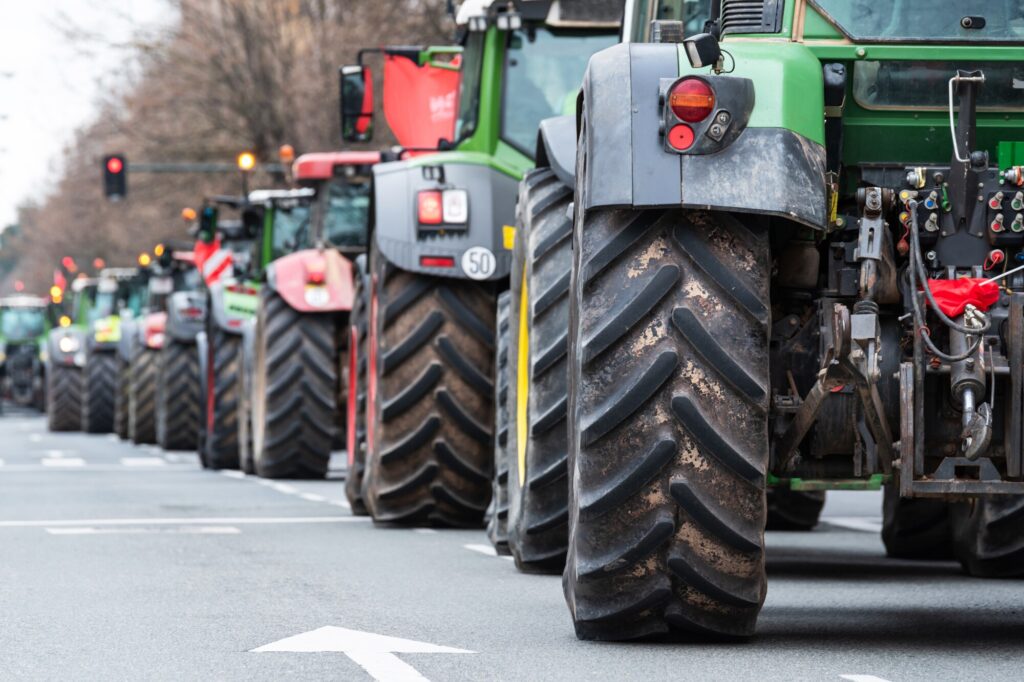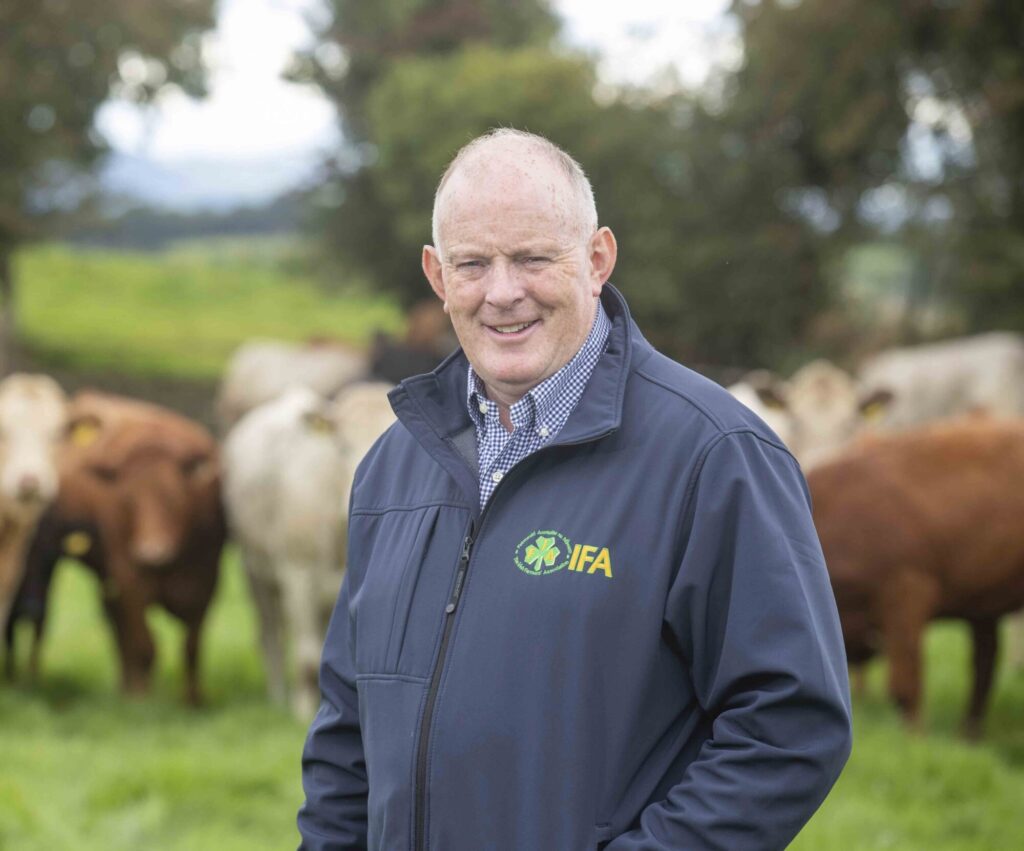First farmers protest launched in Ireland: ‘Enough is enough’
14th February 2024
“Enough is enough,” say Irish farmers as they threaten to target county council meetings around the country, protesting against rising costs and increased regulations.

The president of the Irish Farmers’ Association, Francie Gorman, has sent a message to politicians that farmers are fed up with the red tape in the industry.
The protest fears follow recent actions taken by farmers in Wales. On Monday, 12th February, 20 tractors pulled up outside Rural Affairs Minister Lesley Griffiths’ on Rhosddu Road in Wrexham.
Reforms planned by the Welsh government met with the dissatisfaction of thousands of farmers, which resulted in talks about protests held around the country. This would follow actions taken by farmers in some European countries, including Germany, France, Poland and Italy.
Welsh farmers are now threatening to take action, claiming that the government has “turned its back on the countryside”. The publication of the latest consultation on the Sustainable Farming Scheme, which explains the funding for the industry after Brexit, has become one of the causes of the strike talks.
This news comes two weeks after thousands of farmers protested in counties across Ireland to show their “solidarity with their EU counterparts”.
Enough is enough
Mr Gorman then said: “Irish farmers are pro-EU, but there is mounting frustration about the impact of EU policy on European farmers, and its implementation here in Ireland. The general feeling amongst farmers across the EU is that ‘enough is enough’.”

Longford is one of the first counties to launch the protest. Farmers were set to gather at 4 pm on Wednesday, 14th February, ahead of a Longford County Council meeting.
Longford IFA chairman John Sheridan told the Irish Examiner that farmers are “trying to keep the pressure on” policymakers. They are hoping to meet councillors, and “considering they’re going for election this year, it’s up to them to take the message and bring it back to government”.
Mr Sheridan added that every county is going to be taking part in these tractor protests as council meetings occur. “We want people on feet as well; we want families to come into it, talk to the councillors and explain that we’re being totally and utterly overregulated.
“This protest “is a continuation, and it is going to continue from here. If people don’t sit up and listen, we more than likely will start hitting cities,” Mr Sheridan said.
Protest in Dover
Last Friday, 9th of February, dozens of tractors clogged roads around a major UK port of Dover, to show their dissatisfaction with cheap imports, which may drive local producers out of business. Kent Police said they responded to an incident of “slow-moving vehicles” on Jubilee Way, one of the main roads heading to the port.
According to the BBC, a government spokesperson said: “We firmly back our farmers. British farming is at the heart of British trade.” They said agriculture was at the forefront of any deals negotiated, with a priority on creating new export opportunities and protecting UK food standards.
Environmental benefits alongside food production
On Wednesday, 14th of February, Defra announced that more than 10,000 farmers across England have now applied for the improved Sustainable Farming Incentive (SFI) since it opened in September.
Four months after applications re-opened, the scheme, which has been developed with feedback from farmers, is proving popular with one-in-eight eligible farmers having now submitted an application. This is on top of the 32,000 Countryside Stewardship agreements which are already in place.
SFI, which pays farmers for taking actions that support food production, farm productivity, and resilience, while protecting and enhancing the environment, has attracted applications from farmers in every part of the country, with every type and size of farm business represented.
READ MORE: Everything we know about farming schemes in 2024
Farmers have taken action through the scheme to deliver tangible environmental benefits alongside food production. As of January, 174,000 hectares of arable land is now being managed without insecticides, 71,000 hectares of low input grassland is focused on improving sustainability, and almost 15,000km of hedgerows are under management.
It comes as Defra also announces the winners of the ‘On farm Environmental Resilience’ competition, with projects awarded a share of £12.2 million in funding to solve long-term challenges to plants, crops and farmed animals.
The announcement follows the government’s announcement at the Oxford Farming Conference of the biggest upgrade to the UK’s farming schemes since leaving the European Union.
This included around 50 new actions that farmers can get paid for across all types of farm businesses; a 10% increase in the average value of agreements in the Sustainable Farming Incentive and Countryside Stewardship driven by increased payment rates, with uplifts automatically applied to existing agreements; and a streamlined single application process for farmers to apply for SFI and Countryside Stewardship Mid Tier.
Read more business news here.
